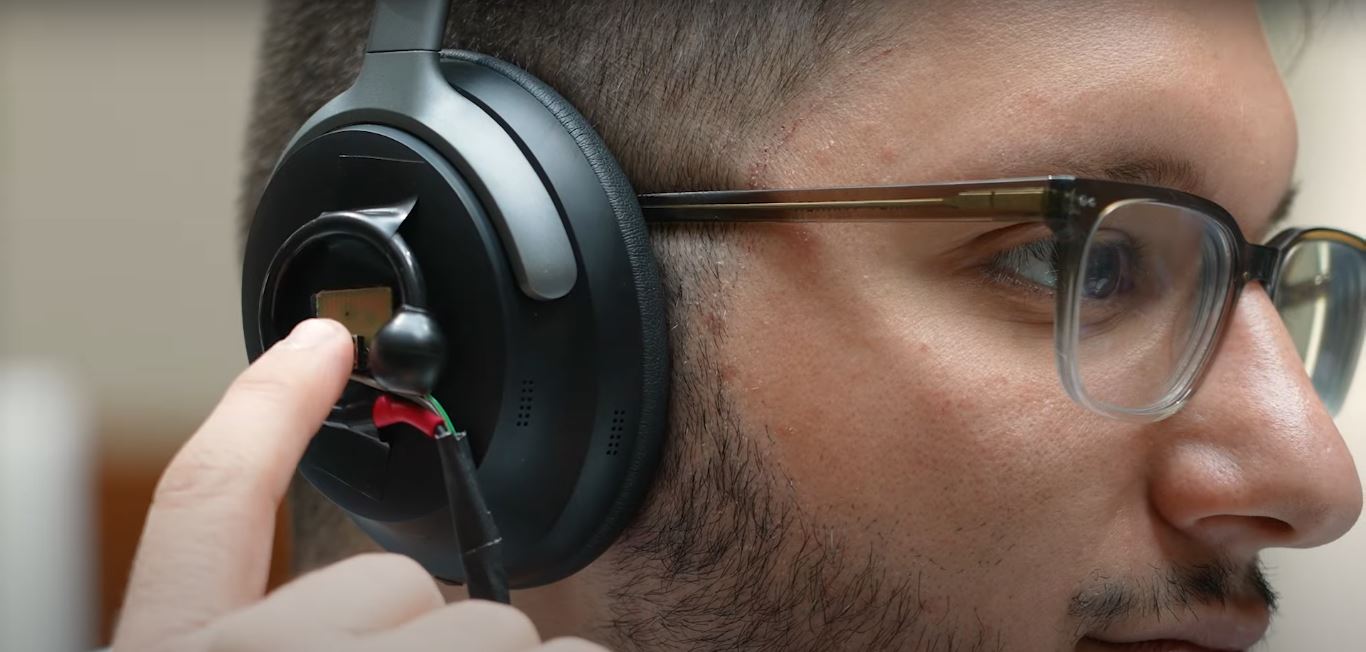The headphones themselves are standard production models, naturally equipped with built-in noise cancellation.

But there’s no mistaking that this is a prototype—two glued-on microphones and an exposed circuit board make that obvious.
However, one that might become available for purchase soon in a more refined, if comparable, version.
Tesla is preparing a software “recall.” it will effect on Indicator Icons
Because the headphones do much more than just the now-familiar noise reduction. The other person’s voice can be clearly relayed straight to your ears with just a button press and eye contact.
On the other hand, the surroundings are nearly entirely obscured and fade into the background.
Artificial intelligence, which records speech messages for a brief period of time after a button is touched, is what makes this feasible.
This is configured to broadcast only the voice that has been recorded, filtering out as much of the other frequencies as it can.

Both ear cups have microphones attached in order for this to function. Voices from the side reach one ear a little faster and the other a little later; only the voice of the person making eye contact reaches both microphones simultaneously.
Although it’s not perfect yet, the stated error of 16 degrees is equivalent to, at most, a small head movement.
To put it simply, anyone with an interest can test and enhance the system.
All of the information and software is accessible on GitHub, thanks to the University of Washington.
Before long, a system like this can be put to use in real life. Ultimately, there are numerous vendors offering high-quality ANC headphones.